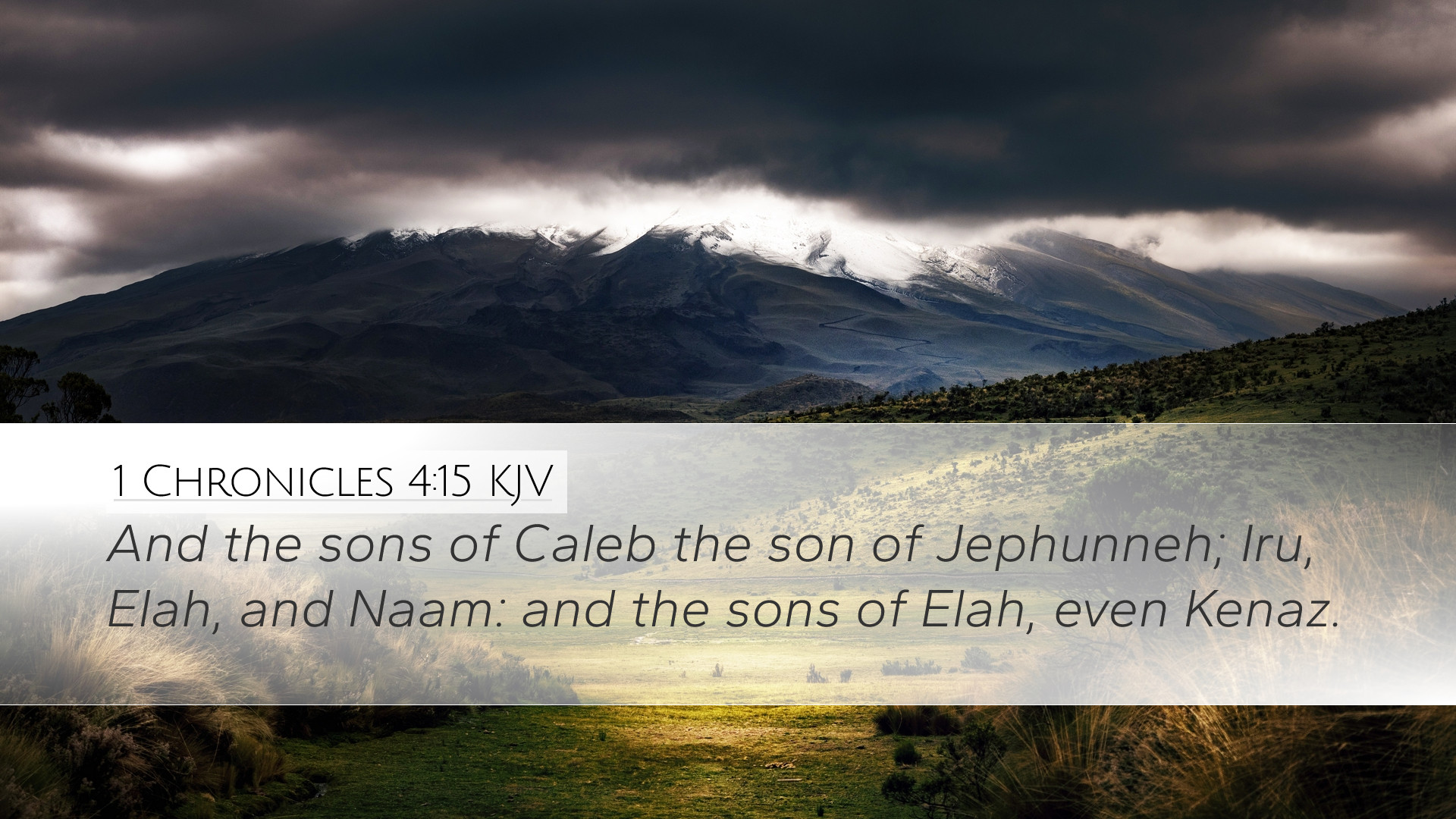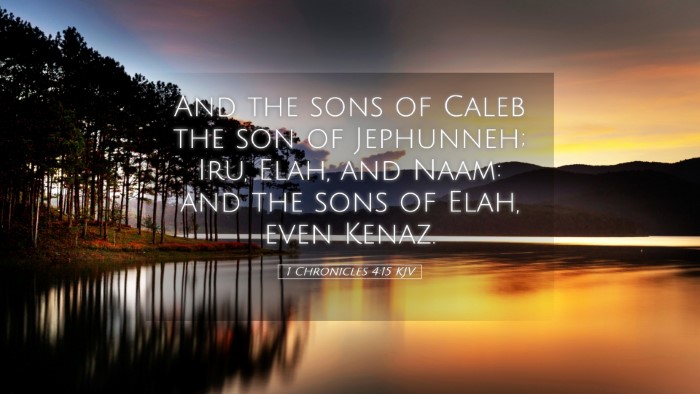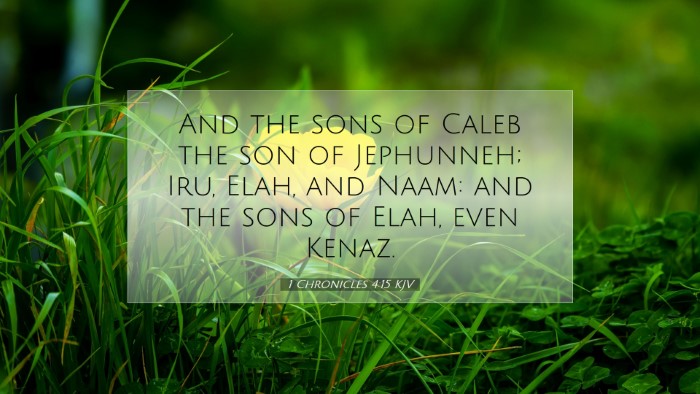Commentary on 1 Chronicles 4:15
Verse: "And the sons of Caleb the son of Jephunneh: Iru, Elah, and Naam." (1 Chronicles 4:15)
Introduction
This verse, while appearing straightforward, holds significant implications regarding genealogical records, the faithfulness of God's promises, and the role of heritage in the spiritual narrative of Israel. Here, we will explore various perspectives from renowned public domain commentaries to delve deeper into its meaning and application.
Contextual Background
The Book of Chronicles often revisits the genealogies of Israel, emphasizing God's covenant with His people. The genealogies serve not only as historical records but also as theological affirmations of God's fidelity and the importance of legacy within the framework of His promises.
Key Themes and Insights
1. The Significance of Caleb
Matthew Henry identifies Caleb, the son of Jephunneh, as a prominent figure of faith and bravery. His legacy is underscored not just in his personal achievements but also in the lineage that followed him. Caleb represented the faithful remnant within Israel and is exemplified as a model of loyalty to God’s directives throughout the conquest of Canaan.
2. Genealogical Reflection
Albert Barnes highlights that genealogies in the Chronicles serve to demonstrate the fulfillment of God's promises to individuals and tribes. In this case, the mention of Caleb’s sons illustrates the continuation of God’s favor and how His blessings were passed down through generations.
3. Spiritual Legacy
Adam Clarke discusses the importance of familial legacy in the context of faith. He posits that Caleb's sons inherit not merely physical land but also the spiritual tenacity exemplified by their father. This accentuates the notion that spiritual virtues can be passed down, leading to generations shaped by faith and godly influence.
4. Names and Their Meanings
A deeper examination of the names Iru, Elah, and Naam reveals the importance of names in biblical texts, which often encapsulate attributes or prophecies regarding the bearers’ destinies. Each name introduces themes of strength, resilience, and possibly divine guidance, culminating in a powerful narrative of God’s ongoing work in His people.
Theological Implications
From these insights, several theological implications emerge:
- Faithfulness of God: The verse affirms God's steadfastness to His covenant, where the lineage of faithful individuals is maintained and celebrated.
- Importance of Heritage: It underscores the value of spiritual inheritance, encouraging present generations to uphold and pass along their faith and values.
- Continuity of God’s Work: The mention of Caleb and his descendants illustrates that God's work is not isolated but spans across the generations, forming a collective narrative of His redemptive purposes.
Application for Today’s Believers
Matthew Henry encourages believers to reflect on their own spiritual heritage and the responsibility to cultivate faith within their families. The acknowledgment of figures like Caleb inspires individuals to aspire to a legacy marked by courage, faithfulness, and obedience to God.
Albert Barnes invites pastors and leaders to teach congregations about the significance of their corporate identity as members of God's family. This chapter serves not only as a historical account but also as a call to community building and corporate faithfulness.
Adam Clarke emphasizes that modern believers must be vigilant in cultivating the values of faith and righteousness in their own lives and their offspring. Just as Caleb's character was pivotal, personal integrity and faithfulness will resonate through families and communities today.
Conclusion
1 Chronicles 4:15 encapsulates profound lessons about heritage, faithfulness, and the eternal nature of God's promises. As such, it serves as a reminder to all Christians—pastors, students, theologians, and scholars alike—of the collective journey of faith in which they partake. The legacy of individuals like Caleb encourages a generational commitment to God's work, prompting contemporary believers to strive for faithfulness in their own lives and to impart that to future generations.


